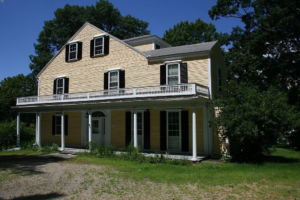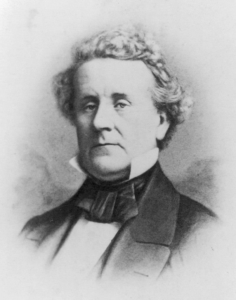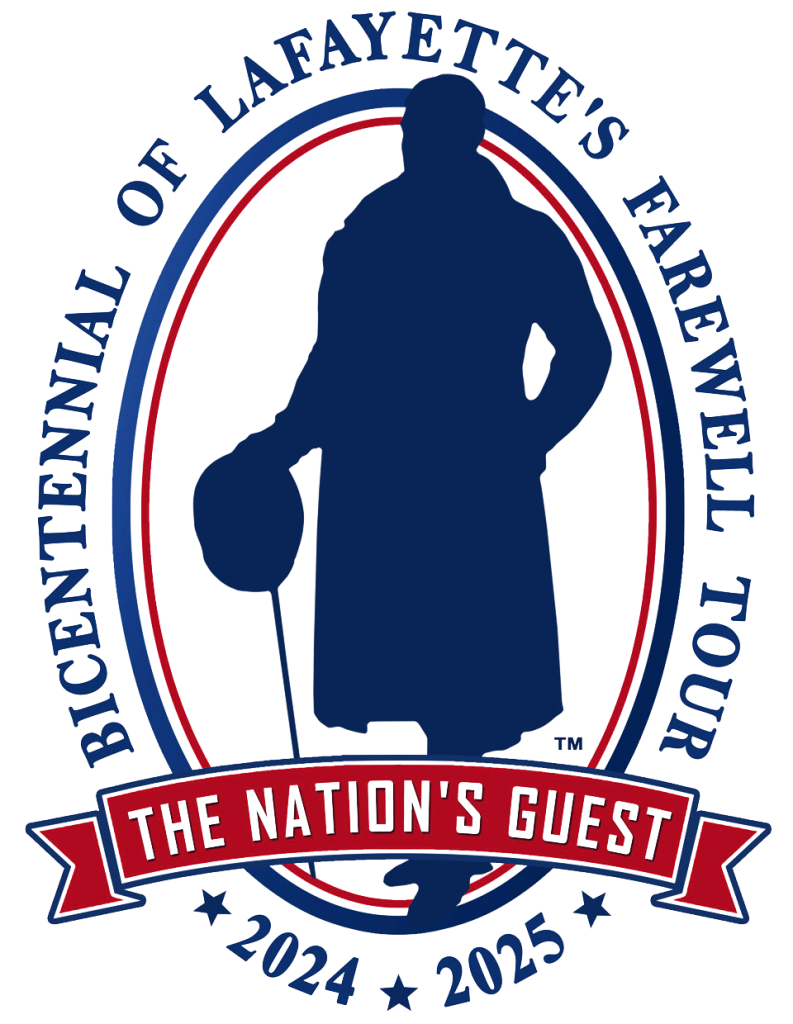This is part of a series on Lafayette’s visit to Massachusetts August 23, 1824 to September 3 1824.
Lafayette arrived at the Worcester line around 10:30 am. Judge Lincoln and the committee were awaiting him in coaches. A procession formed, consisting of two companies of cavalry followed by two of the marshals, members of the committee of arrangement, two more marshals, Lafayette and Judge Lincoln in a barouche, George Washington Lafayette and suite, a cavalcade of officers and militia of the Sixth Division in full dress, and a cavalcade of citizens.
A regiment of light troops under the command of Lt. Col. Ward joined the procession near Clarke’s tavern. The road became thronged with people. When the procession reached the declivity near the Paine mansion, now called “The Oaks” (140 Lincoln Street), it passed under a number of flags. A national salute was fired. Bells started ringing.

The Oaks, 140 Lincoln Street, Worcester
Veterans of the revolution pressed up to the barouche and extended their arms. Lafayette shook the hands of many of the old soldiers as they moved along. It is worth noting here for perspective that the “old soldiers” were probably on average a decade or so younger than our Vietnam veterans.
They passed under a decorated arch upon Court Hill. Teachers and children lined the streets. The children threw laurel in his path. The procession passed under several flags extended across the street. One read “Hitherto I have only cherished your cause, now I go to serve it.” Underneath was inscribed “Brandywine, Jamestown, Valley Forge, Yorktown.”
There was a presentation in front of the mansion of Judge Lincoln (not the building preserved in Sturbridge).

The Honorable Levi Lincoln made the following address:
General Lafayette – The citizens whom you see assembled around you, have spontaneously thronged together, to offer you the tribute of their affection, their respect – their gratitude. In the name of the inhabitants of Worcester, the shire of an extensive county of more than 75000 population; in behalf of all who are present, and in anticipation of the commands of those, whom distance and want of opportunity occasion to be absent from this joyous scene, I repeat to you the salutations, which elsewhere have been so impressively offered upon your arrival in this country, and your visit to this Commonwealth. Welcome, most cordially welcome, to the presence of those who now greet you!
Your name, sir, is not only associated with the memorable events of the revolution, with the battle of Brandywine, the retreat from Valley Forge, the affair near Jamestown, and the triumph at Yorktown, but the memorials of your services, and our obligations exist, in the Independence of the nation which was accomplished, in the Government of the people which is established, in the Institutions and Laws, the arts, improvements, liberty and happiness, which are enjoyed. The Sword was beaten into the Plowshare to cultivate the soil which its temper had previously defended, and the hilltops shall now echo to the sea shore the gratulations of the independent proprietors of the land, to the common Benefactor of all ranks and classes of the people.”
…he received with much sensibility the expression of kind attention with which he was received by the inhabitants of the town and County of Worcester – that he was delighted with the fine country which he had seen, and the excellent improvement and cultivation which he witnessed – that he saw the best proofs of a great, prosperous and happy people, in the rapid advancement of the polite and useful arts, and in the stability of our free institutions-that he was especially much gratified in the great improvements of the face of the country because he was himself a farmer – that he felt happy to observe such decided proofs of industry, sobriety and prosperity. He begged the citizens to be assured of his affectionate and grateful recollection of their reception of him – he thanked them for all they had manifested towards him, for the kind expressions which had been offered him by the committee, and in a feeling impressive manner, reciprocated their good wishes.
Lafayette then entered the house where breakfast awaited him – a second breakfast we might say. He mingled with the citizens, but around 2:00 pm, he realized it was time to get moving. He reviewed the troops remarking that their appearance and equipment had not been excelled by any body of militia in the United States.
He remarked that, “It is the homage you pay to the principles of your government, and not to me.”
Hannah Hemenway was a woman of native and African-American descent. She was well known in Worcester for the wedding cakes she baked. On August 29, 1891 an interview with her was published in the Boston Globe. She was 97 years old at the time so the interview covered a lot of ground, but her memory of Lafayette’s visit stood out.
“She spoke freely about Gov. Lincoln whom she said she saw frequently and shook hands with. He often spoke pleasantly to her.
‘Yes, and I saw Lafayette when he passed through this city and he bowed on this side and that side to everybody and they say he got so in the habit of it that he used to bow in his sleep’ and Aunt Hannah laughed as she recalled the joke.
‘Lafayette rode to Gov. Lincoln’s house, where he dined. He was escorted by the Worcester Light Infantry, and said they were the best looking soldiers he saw anywhere’”
———————————————————————————————————————————————————-
For information on the bicentennial of Lafayette’s tour check out lafayette200.org.































































































